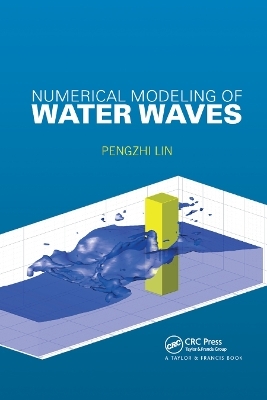
Numerical Modeling of Water Waves
Seiten
2019
CRC Press (Verlag)
978-0-367-86623-5 (ISBN)
CRC Press (Verlag)
978-0-367-86623-5 (ISBN)
Various types of wave models are presented in this book along with the theoretical assumptions, application range, and advantages and limitations of each model.
Modelling large-scale wave fields and their interaction with coastal and offshore structures has become much more feasible over the last two decades with increases in computer speeds. Wave modelling can be viewed as an extension of wave theory, a mature and widely published field, applied to practical engineering through the use of computer tools. Information about the various wave models which have been developed is often widely scattered in the literature, and consequently this is one of the first books devoted to wave models and their applications.
At the core of the book is an introduction to various types of wave models. For each model, the theoretical assumptions, the application range, and the advantages and limitations are elaborated. The combined use of different wave models from large-scale to local-scale is highlighted with a detailed discussion of the application and matching of boundary conditions. At the same time the book provides a grounding in hydrodynamics, wave theory, and numerical methods which underlie wave modelling. It presents the theoretical background and also shows how to use these models for achieving different engineering tasks, illustrated and reinforced with case study examples.
Modelling large-scale wave fields and their interaction with coastal and offshore structures has become much more feasible over the last two decades with increases in computer speeds. Wave modelling can be viewed as an extension of wave theory, a mature and widely published field, applied to practical engineering through the use of computer tools. Information about the various wave models which have been developed is often widely scattered in the literature, and consequently this is one of the first books devoted to wave models and their applications.
At the core of the book is an introduction to various types of wave models. For each model, the theoretical assumptions, the application range, and the advantages and limitations are elaborated. The combined use of different wave models from large-scale to local-scale is highlighted with a detailed discussion of the application and matching of boundary conditions. At the same time the book provides a grounding in hydrodynamics, wave theory, and numerical methods which underlie wave modelling. It presents the theoretical background and also shows how to use these models for achieving different engineering tasks, illustrated and reinforced with case study examples.
Pengzhi Lin is Professor at the State Key Laboratory of Hydraulics and Mountain River Engineering, Sichuan University, China.
Preface 1. Introduction to water wave modeling 2. Review of Hydrodynamics 3. Water Wave Theories and wave phenomena 4. Numerical Methods 5. Water wave models 6. Modeling of wave-structure interaction 7. Summary
| Erscheinungsdatum | 16.12.2019 |
|---|---|
| Verlagsort | London |
| Sprache | englisch |
| Maße | 156 x 234 mm |
| Gewicht | 712 g |
| Themenwelt | Mathematik / Informatik ► Mathematik ► Angewandte Mathematik |
| Naturwissenschaften ► Geowissenschaften ► Hydrologie / Ozeanografie | |
| Technik ► Bauwesen | |
| Technik ► Maschinenbau | |
| Technik ► Umwelttechnik / Biotechnologie | |
| ISBN-10 | 0-367-86623-4 / 0367866234 |
| ISBN-13 | 978-0-367-86623-5 / 9780367866235 |
| Zustand | Neuware |
| Haben Sie eine Frage zum Produkt? |
Mehr entdecken
aus dem Bereich
aus dem Bereich
Buch | Softcover (2024)
Springer Vieweg (Verlag)
44,99 €
Anwendungen und Theorie von Funktionen, Distributionen und Tensoren
Buch | Softcover (2023)
De Gruyter Oldenbourg (Verlag)
69,95 €


